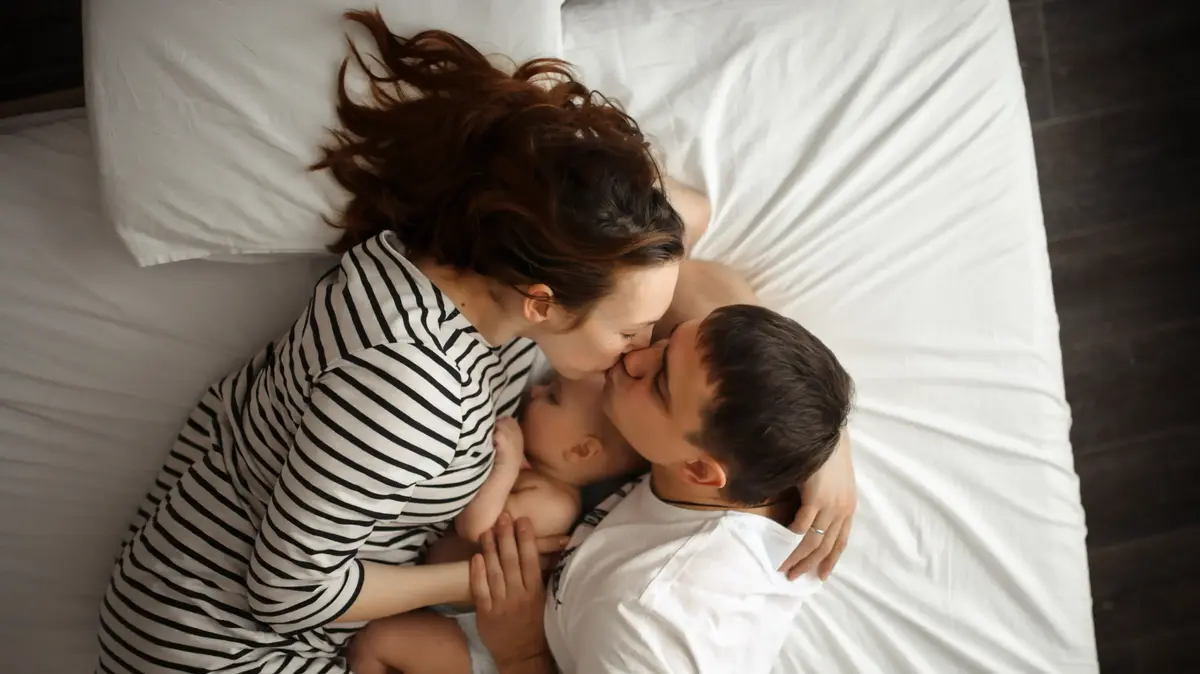Daughter of a Spanish mother and a Syrian father, and mother of four daughters, the gynecologist and obstetrician Miriam Al Adib Mendiri (Almendralejo, 1977) has spent more than a decade spreading the word through social networks —she has 112,000 followers on her Instagram account— and the media. , women's health issues from a gender perspective.
Also through writing: after publishing
Let's talk about vaginas
(2020),
Let's talk about ourselves
(2021) and a collection of poems,
Red black white
(Anaya, 2022), now he enters the stage of adolescence with
Let's talk about adolescence
(2022 ), a book that covers sexuality from a global and critical perspective, without losing sight of a biopsychosocial perspective.
In the story, Al Adib invites both adolescents and adults to reflect on how to relate affectively, to analyze how sexuality is lived, to become aware of the body and, above all, to resolve issues that are not always are easy to address, such as sexual repression, bullying, relationship pain, masturbation, drugs, or toxic relationships.
More information
When and how children develop sexuality
QUESTION.
What would you say is what those who have sons or daughters fear the most in terms of sexuality?
REPLY.
Depending on how you understand sexuality, you will have some fears or others.
An unwanted pregnancy, a sexually transmitted disease, suffering... In the end we all have the same thing in common: we don't want our children to suffer.
What happens is that in order for them not to suffer there must be a balance between being very present to help them in everything they need and at the same time respecting their space, their privacy, their decision-making...
Q.
It says in the book that if the children do not have the confidence to ask questions or if they have not developed a healthy bond, they will not ask questions about their sexuality.
Do mothers and fathers have to start by checking themselves?
R.
We often say things like: "Go with the new generations" or "When we were teenagers we were not like that...".
We should begin to think that adolescents are not separated from the society of which we are all a part, that they would not be as they are if adults were not as we are.
We have to review all the myths and cultural taboos that cross us and influence us.
And what we transmit to them.
Sex education does not consist of sitting down one day with our son or daughter to talk about how to prevent pregnancies and infections, but rather sex education goes further and starts from birth.
Our way of relating as a couple has a lot to do with the way we have been raised.
If we grow up in a loving environment, with a secure attachment, if our parents have a healthy sexuality,
sex education will be very simple.
In such an environment, children and adolescents will have confidence and will ask their attachment figures questions related to sexuality.
Q.
More and more critical voices, like yours, insist that sex education, in general, focuses above all on risky behaviors.
Would you say that there is a tendency to educate based on fear and control?
R.
We tend to have a hidden look.
If we talk about sex education, we focus on the negative part of sex, as if everything in sexuality was dangerous and terrible.
We do not talk about the affective, emotional part, pleasure, love, bonds... When we talk about sex in this way, the curiosity that any adolescent has is not satisfied with good information, so they will normally search the internet, and we already know the first thing that appears on the net as soon as you put the word sex in any search engine.
Q.
Why is good sex education important and how does it impact everything else?
A.
A healthy sexuality positively influences our physical, mental and relational health.
Avoid situations of vulnerability, and I am not only referring to the vulnerability of having a sexually transmitted infection or an unwanted pregnancy, but also to perpetuating a relationship where it makes no sense to continue because you are suffering.
There are people who are abused within a couple and are not even aware of it.
A good sexual education avoids maintaining situations of this type.
On the other hand, as a gynecologist I see many sexual health problems in women that persist over time, such as pain in relationships or any other type of intimate discomfort, that have normalized or are hidden out of fear or shame.
View this post on Instagram
A post shared by Dr. Miriam Al Adib Mendiri (@miriam_al_adib)
Q.
What impact do sexual experiences have during adolescence in the future?
R.
There are anthropological studies that show that there are two periods in life that have a great impact on sexuality: the first years of life and adolescence.
In the consultation I meet women with problems such as vaginismus (impossibility of penetration because the involuntary muscles of the pelvic floor contract) who have been suffering from their first relationships.
When there is a problem of this type, it must be addressed as soon as possible to find out the origin and treat it.
If we don't treat it over time they don't usually improve but the opposite.
This conditions their relationships and their sexual life, lowers their self-esteem, and affects them greatly at all levels.
In the last chapter of the book I talk about body awareness and pain.
If this becomes clear to any adolescent before their first relationship,
Q.
Do adolescents feel free to ask, request, in the gynecology consultation?
R.
When they enter alone they ask more, when they enter with their mothers many do not dare to raise issues about sex that worry them.
On one occasion a mother came with her 18-year-old daughter whose reason for the consultation was to have pain with relationships.
This is rare that they consult it and less with the support of their mothers.
In this case, the girl had vaginismus that she resolved by referring her to a pelvic floor physiotherapist.
If she had not resolved herself, she would very likely have dragged this burden for years, with difficulties in her sexual-affective relationships, loss of self-esteem, even some avoid meeting potential partners...
Q.
When to go with them for the first time?
A.
Ideally, they should have access to good sexual education and if they want to clarify doubts, make a gynecological consultation to address the educational part before having sex.
Then, if there is no gynecological problem, start at the beginning of sexual intercourse.
Q.
What should all teens know?
R.
That for any type of affective relationship, so that they do not harm anyone or harm themselves, they maintain the three R's: respect, responsibility and reciprocity.
That when in a relationship you suffer, that is not love.
That if they have a problem of a sexual nature, do not feel ashamed or guilty and seek professional help if they need it.
That if they make a mistake, they learn so as not to repeat the mistake.
That we have come into this world to love and be loved.
You can follow Mamas & Papas on
,
or sign up here to receive
our biweekly newsletter
.











/cloudfront-eu-central-1.images.arcpublishing.com/prisa/KMEYMJKESBAZBE4MRBAM4TGHIQ.jpg)



